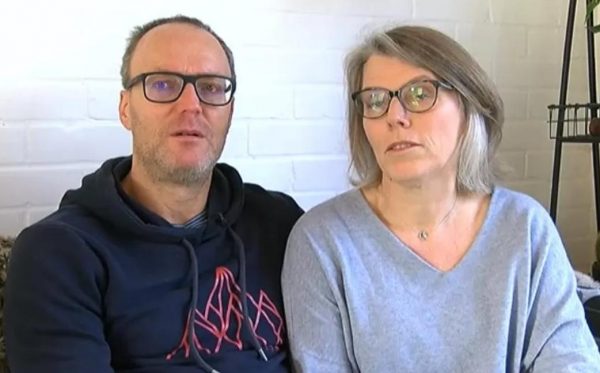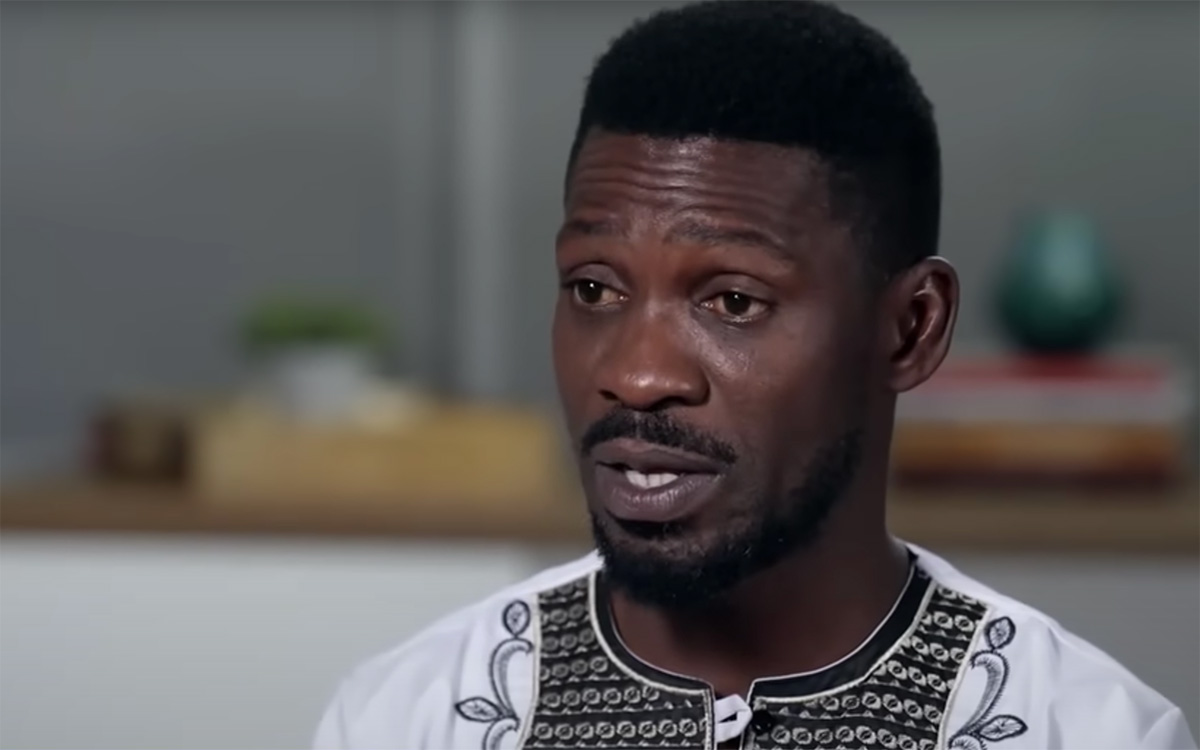United Kingdom
Transgender Gen Zer dies by suicide after wait on U.K. healthcare system list
Alice Litman’s parents said daughter could not access gender-affirming care

Alice Litman was a high school junior when she told her family she wanted to live as a woman. Barely for years later at age 20 she died by suicide. According to her parents Peter and Caroline Litman, she died partly because of the inaccessibility of gender-affirming healthcare in the U.K.
The BBC reported that an inquest is to be held into the death of Litman, who died by suicide while on a National Health Service waiting list for almost three years for gender-affirming healthcare. She had been referred to the NHS Gender Identity Development Service in August 2019, but was still waiting for an initial assessment when she died by suicide at the age of 20.
BBC News reported that the Tavistock and Portman NHS Foundation Trust, where the gender-identity clinic is based, as saying it was “deeply saddened” by Litman’s death but it was “not appropriate to comment while the inquest is ongoing.”
The clinic’s website, which currently only shows data from the same month that Litman died, reveals the waiting list to be 11,407 people long.
Assistant coroner Sarah Clarke will examine issues relating to her death in the coroner’s inquest due to take place this upcoming September.

Peter and Caroline Litman hope lessons will be learned from their daughter’s death the couple told the BBC. They said in a statement: “We believe that Alice died partly because of the inaccessibility of gender-affirming healthcare in the U.K.”
“We want the inquest to examine this to ensure we can get justice for Alice, and change for all the trans people who are facing the same issues.”
“It’s not just Alice. It’s too late for her. There are lots of other young transgender people out there and they need our help.”
Last month PinkNewsUK journalist Patrick Kelleher reported LGBTQ people already face disproportionately worse healthcare outcomes in the U.K. — and that’s without an NHS in crisis.
The crisis is a dangerous threat to everybody who relies on free healthcare, reports PinkNewsUK.
For LGBTQ people specifically, it’s compounded by existing barriers — the NHS has acknowledged that outcomes are disproportionately poor for the queer community.
In the government’s 2017 National LGBT Survey, 16 percent of LGBTQ people said they had a negative experience when accessing public health services because of their sexual orientation, while 38 percent had a bad experience on the basis of their gender identity. More than half (51 percent) faced waits for mental health care, while years-long waiting lists for gender-affirming care are well-documented.
Cleo Madeleine, communications officer for trans charity Gendered Intelligence, told PinkNewsUK:
“LGBT+ people already have worse access to healthcare than the general population, with both physical and mental health outcomes falling across the board. Some of this stems from a lack of education on LGBT+ people or an excess of stigma around specific needs like sexual health and gender identity services.
“Elsewhere we find that LGBT+ people — as many as 25 percent — avoid seeking necessary care because they fear reprisal, or because they have been denied healthcare because of their identity before.”
United Kingdom
Current, former PinkNews staffers accuse publisher, husband of sexual harassment
CEO Anthony James suspended from NHS job after allegations became public

Thirty-three current and former employees of an LGBTQ news website in the U.K. have accused its publisher and husband of sexual harassment and misconduct.
The BBC on Tuesday reported “several” former PinkNews staffers saw Chief Operating Officer Anthony James “kissing and touching a junior colleague who they saw appeared too drunk to consent” outside of a London pub after a company event.
James’s husband, Benjamin Cohen, founded PinkNews in 2005.
The BBC reported the current and former staffers with whom it spoke said “a culture of heavy drinking led to instances when” Cohen and James “behaved inappropriately towards younger male employees.”
Stephan Kyriacou, who worked at PinkNews from 2019-2021, told the BBC that Cohen slapped him on his butt at a Christmas party.
“I just shut down for a minute. I didn’t know what to say. I was in shock,” Kyriacou told the BBC. “I remember turning to my friends and saying, ‘What the hell just happened?'”
The BBC spoke with PinkNews staffers who said “they were shouted at and belittled by Mr. Cohen, and that there was a ‘toxic’ culture at the company. Others said they saw “misogynistic” behavior.
Neither Cohen, nor James spoke with the BBC. The Washington Blade has reached out to PinkNews for comment.
Media reports indicate Bedfordshire Hospitals NHS (National Health Service) Foundation suspended James, who is a doctor, from his job after the allegations against him and Cohen became public.
United Kingdom
Anti-LGBTQ UK Cabinet minister fired
Advocacy groups frequently criticized Suella Braverman

Suella Braverman, the controversial British Home Secretary who was fired by Prime Minister Rishi Sunak in a phone call Monday, fired back publicly Tuesday releasing a scathing three page resignation letter accusing Sunak of “not having a plan” and failing to deliver promises made to the British people on among other items, hot button immigration and crime prevention issues.
Braverman took office in October 2022 as home secretary while Sunak formed a new government after former British Prime Minister Liz Truss stepped down on her 50th day in office amid a government crisis, making her the shortest-serving prime minister in British history.
The former home secretary was known for her far-right conservative views and in the past year had made a series of public comments in speeches and in the press that derided LGBTQ people, asylum seekers and illegal immigrants. Her remarks disparaging transgender British females oft times echoes similar sentiments stated publicly by the prime minister.
This past June at a Conservative Party conference, the prime minster was caught on a video clearly mocking trans females.
The prime minster makes reference to an opposition leader, although that person is not clearly identified. Sunak then took aim at Edward Jonathan Davey, a British politician who has served as leader of the Liberal Democrats since 2020.
“Over the same period of time, you might have noticed Ed Davey has been very busy,” Sunak says. “Like me, you can probably see that he was trying to convince everybody that women clearly had penises. You’ll all know that I’m a big fan of everybody studying maths to 18, but it turns out that we need to focus on biology.”
A recent YouGov UK international online research data and analytics technology group poll conducted earlier this month found that 49 percent of British voters wanted Braverman sacked.
PinkNewsUK reported calls for Sunak to fire Braverman have gotten louder over the course of last week, after she hit out at peaceful pro-Palestine protesters labeling their marches in London as “hate marches” and she also accused the Metropolitan Police of bias, which officers have said sparked far-right attacks on members of the force.
On issues over LGBTQ Britons, the former home secretary in October said that trans women should not be treated in female hospital wards. In an interview with Sky News, she said: “Trans women have no place in women’s wards or, indeed, any safe space relating to biological women.”
“The health secretary’s [Steve Barclay] absolutely right to clarify and make it clear that biological men should not have treatment in the same wards and in the same safe spaces as biological women,” she said. “This is about protecting women’s dignity, safety and privacy and that’s why I’m incredibly supportive.”
In September, in her speech to the American Enterprise Institute, a right wing think-tank in D.C., Braverman on the subject of political asylum remarked: “Where individuals are being persecuted, it is right that we offer sanctuary. But we will not be able to sustain an asylum system if, in effect, simply being gay or a woman, and fearful of discrimination in your country of origin, is sufficient to qualify for protection.”
In an interview with PinkNewsUK after her speech in D.C., Sebastian Rocca, the founder and chief executive of LGBTQ asylum charity Micro Rainbow, believes Braverman is trying to scapegoat migrants.
“The comments made by the home secretary are deeply disturbing,” he said. “LGBTQI people often face death, imprisonment and violence. When they come to the UK to seek safety, they have to go through an asylum system that is re-traumatizing and dehumanizing. In addition, the standard of proof is very high.”
“The system, as it is, is incredibly difficult. These comments seek to scapegoats migrants and LGBTQI people for political gain once again,” he added.
A new dynamic in attitude towards the UK’s LGBTQ community?
In addition to sacking Braverman, the prime minster radically overhauled his team in the Cabinet reshuffle including adding former Prime Minister David Cameron as the new British foreign secretary.
James Cleverly, whose job Cameron took over, was named as home secretary. His positions on most LGBTQ issues is in line with the Tory Party generally, however PinkNewsUK noted that while Cleverly has never voted on same-sex marriage, he expressed his support for equality in a blog post first published in 2005 titled “I like marriage.”
“Gay ‘marriage’ takes nothing away from heterosexual marriage and while there will be some civil partnerships which are done for the wrong reasons the same can be said of straight marriage. Best of luck I say,” he wrote.
He has also expressed support for LGBTQ inclusive education and for LGBTQ people in the military, but he did face some criticism when he said gay football fans would have to be “respectful” when traveling to Qatar for the World Cup.
Overall the British LGBTQ publication reported, is that the new home secretary is “an obvious step up from Braverman.”
Cameron’s record on LGBTQ rights, especially while serving as prime minister, PinkNewsUK reported has been favorable. He voted in favor of civil partnerships in 2004 and in favor of the Equality Act in 2007, and later voted in favor of same-sex marriage.
Former Health Secretary Steve Barclay’s departure is a relief for some LGBTQ Brits, especially in light of his recent campaign against trans people in the British healthcare system.
In a speech at the Conservative Party conference in October, Barclay spoke out about his plans to introduce “sex-specific” language throughout the health service when referring to treatments and advice for menopause and some types of cancer. In the same speech, he announced plans to ban trans people from single-sex wards.
However Barclay’s replacement has had a troubling record on transgender healthcare issues. In 2018, Atkins, who was then minister for women, was criticized when she called for “caution” before treating young trans people in an interview with the Telegraph.
“The treatments are so serious and life-changing. I’m a little cautious of the use of those treatments because of the potential for the rest of their lives,” she said.
The prime minster is also facing renewed calls and anger over the omission of announcing a ban on conversion therapy in the King’s Speech. The Equality and Human Rights Commission has been urging Sunak to uphold a pledge to enact a ban on the discredited practice.
The BBC reported that earlier this year the EHRC wrote to the government to urge them to include the legislation in the speech, which sets out the government’s priorities for the coming years.
A spokesperson for EHRC told the BBC: “We have long supported proposals to end these practices. Conversion practices, aimed at changing someone’s sexual orientation or personal understanding of their own gender, can be incredibly harmful to people with the protected characteristics of sexual orientation and gender reassignment.
We will continue to stand ready to provide expert advice and hope the government will uphold its commitment to ban harmful conversion practices.”
Its lack of inclusion in the King’s Speech is thought to be over disagreements within the Conservative Party the BBC noted regarding what form a ban should take, and concerns over how it could impact freedom of expression around issues such as gender identity, as well as any potential impact on religious freedoms.
Robbie de Santos, director of external affairs at Stonewall UK, told the BBC: “[The government] has given the green light for the abuse against LGBTQ+ people to continue unchecked. Rather than getting mired in a cynical cultural war, it should be making decisions based on what the evidence and expertise said.”
United Kingdom
UK lifts travel ban on Ugandan opposition leader over anti-gay song lyrics
Bobi Wine had been prohibited from country since 2014

The U.K. has lifted a travel ban on Robert Kyagulanyi, a renowned Ugandan rapper known as Bobi Wine who has become the leader of the country’s opposition, over a 2014 song with homophobic lyrics.
Wine on Sunday confirmed the British government’s decision after about 10 years of being banned from his controversial anti-gay lyrics perceived to incite homophobic attacks against individuals he referred to as “battymen.”
“I am very glad to inform you that the ban against me from entering the U.K. has finally been overturned, and I will soon be visiting the U.K. after more than 10 years,” he said.
The homophobic lyrics the LGBTQ rights groups cited in petitioning the British government to ban him from traveling to the U.K. were: “Fire will burn the batty man. Burn all the batty man. All Ugandans get behind me and fight the batty man.”
LGBTQ rights activists in a petition they launched in July 2014 on Change.org demanded the British Home Office “immediately” deny Wine’s entry into the country and cancel his concerts in London and Birmingham.
The petitioners accused Wine of writing “blatant homophobic lyrics (that) call for gay people to be attacked or killed” and cited the U.K.’s 2008 Criminal Justice and Immigration Act that criminalizes the incitement of hatred based on sexual orientation. The activists said that allowing Wine to proceed with his two concerts in August of the same year would “raise tensions” and prove “unacceptable” to the U.K., which “prides itself on tolerance and understanding.”
The petitioners not only wanted Wine banned from performing in the U.K., but also in the Netherlands, France, Sweden, Denmark and other European countries.
Wine at the time was unremorseful and stressed he would not be coerced into backing homosexuality by the cancellation of his performances to support the Ebonies, a Ugandan drama and music group.
“I am a Ugandan and not a Londoner and I’m following the Ugandan constitution,” Wine told a Ugandan media outlet. “I did not make the laws, I follow them.”
He also claimed his strong anti-gay position was a reflection of “99 percent of Ugandans” and mocked so-called proponents of homosexuality for priding themselves in “their liberalism and support for human rights.” He demanded they allow “me my right of expression,” even if they were not comfortable with his homophobic opinion.
Wine’s controversial anti-gay stand also included criticism of then-U.S. President Barack Obama over his support of LGBTQ rights in response to Uganda’s 2014 Anti-Homosexuality Act that imposed a life sentence for gay people. The country’s Constitutional Court overturned it.
Wine in 2017 entered politics and won a seat in the Ugandan Parliament. He ran against incumbent President Yoweri Museveni, who rules the country with an iron first, in 2021.
Wine, who is a member of the National Unity Platform, is currently Uganda’s opposition leader. He has been vocal in demanding the international community hold Museveni accountable for his government’s widespread human rights violations.
While acknowledging the British government’s move to lift his travel ban, Wine applauded his lawyers in England for the “relentless fight” and his political supporters, including those in the diaspora, for “constantly raising our voice through protests” and petitioning higher offices.
“Their main argument has been that it is unfair to open their doors for Gen. Museveni, a world-renowned tyrant, and yet continue to shut the door for me who, together with many others are trying to build a free and democratic country,” he said.
His sentiments are in response to Museveni’s democracy and human rights record, particularly his signing of the Anti-Homosexuality Act 2023 into law in May.
Several Western nations have imposed sanctions on Uganda and several government officials behind the punitive law. The Biden-Harris administration last week announced plans to remove Kampala a program that allows sub-Saharan African countries to trade duty-free with the U.S.
The U.S. announcement came after increased pressure on Museveni to reverse the implementation of the law and meeting with several Ugandan human rights activists and exiled dissidents.
Kakwenza Rukirabashaija, an award-winning Ugandan author who is exiled in Germany, has written books that are critical of Museveni’s governance. He applauded the U.S. decision and noted his and other activists’ visit to the State Department earlier this year.
“We, a few months ago visited the Department of State in the USA and explained how Uganda as a beneficiary of AGOA (African Growth and Opportunity Act) would violate the American foreign policy on human rights,” said Rukirabashaija on his X account. “I’m glad that they listened. May you continue to listen to the cries of Ugandans.”
-

 Music & Concerts5 days ago
Music & Concerts5 days agoKylie brings ‘Tension’ tour to D.C.
-

 South Africa4 days ago
South Africa4 days agoUS-funded South African LGBTQ groups curtail operations
-

 Maryland2 days ago
Maryland2 days agoTrans Maryland founder: Trans people ‘are afraid’
-

 District of Columbia2 days ago
District of Columbia2 days agoLocal officials weighing impact of Trump’s D.C. executive order











